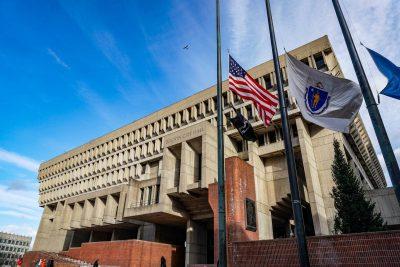
The City of Boston will no longer require residents to disclose their sex or gender on marriage license applications, a change made in accordance with new gender-aware guidelines launched on Aug. 29.
The guidelines aim to change the way City Hall collects data and communicates with residents about gender, striving to uphold Mayor Michelle Wu’s efforts to ensure gender inclusion and equity while she was on city council in 2020.
“Language inclusion and gender inclusion and the way that we collect data promotes health and wellness and reduces bias,” said Mariangely Solis Cervera, the chief of equity and inclusion for the City, in an Aug. 29 press conference.
Kimberly Rhoten, a nonbinary official at City Hall, spoke during the press conference of the impact adapting marriage licenses would have on their community.
“By removing gender markers we actually alleviate dysphoria for many in our community,” Rhoten said. “By removing these markers, we are no longer forced to choose amongst these very narrow … gender options.”
City officials credit cross-departmental collaboration between the Department of Innovation and Technology, the Mayor’s Office of LGBTQ+ Advancement and the City’s Registry Department that led to surveys, focus groups and interviews with queer Boston residents to understand the issues they are facing that make the policy change necessary.
Paul Chong, the City of Boston registrar, who also spoke at the press conference on Aug. 29, said the registry was the “constituent-facing department” that helped these practices translate into service, while MOLA led the community engagement efforts and DOIT had subject matter experts who worked on data collection.
Julia Gutiérrez, chief digital officer for the City of Boston, said this progress is not in its final form, and will take time to fully implement gender inclusive changes across city government.
“Today, we’re announcing the launch of these standards as well as the beginning of the ongoing process to gather feedback,” Gutiérrez said in a press conference.
Gutiérrez asked Boston residents to visit boston.gov to share feedback about the policy change directly on the site, or do so by emailing [email protected].
The long-awaited change in protocol drew support from organizations like MassEquality, an advocacy organization that works to address oppression based on sexual orientation, gender identity and gender expression.
Tanya Neslusan, executive director of MassEquality, said the changes to marriage licenses are a “step in a logical direction.”
“The more de-gendering of documents, the better,” Neslusan said, naming birth certificates and adoption papers as other documents that should be examined with gender inclusive intent.
Candace Nguyen, a community relations specialist for the City, said more gender inclusive policy changes directed by MOLA are to be expected to be implemented at City Hall in the near future.
“We are conducting an LGBTQ+ competency training within City Hall to help employees be more mindful around pronouns,” Nguyen said.
Nguyen also said MOLA is looking into providing resources for those who are not in the financial position to legally change their names, which can cost up to $500.
Beyond documentation and language guidelines, Neslusan urged the city to look critically at “things that are not as easily solved,” such as the housing crisis affecting the queer community.
Chong said he hopes the progress in Boston can promote changes across the state government as well.
“I am really excited to see what the Registry of Biostatistics at the state does,” Chong said. “[That] way our work doesn’t just stay with the City, but expands to the state and beyond.”






















































































































